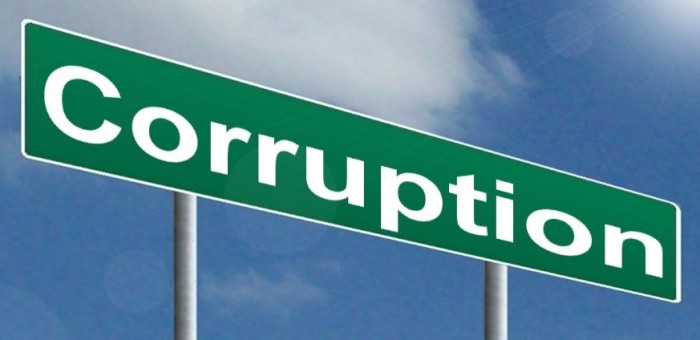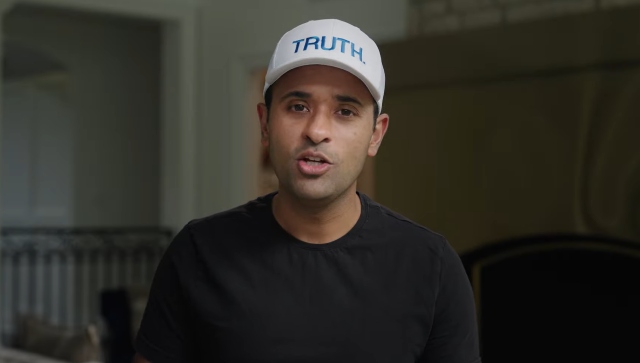DO NOT ANSWER: 12 Scam phone numbers to avoid
09/01/2023 / By Zoey Sky

Scammers and hackers will use whatever means they can to steal money and information from their victims. If you’re worried about scams, block the 12 scam numbers listed below on your phone.
12 Common spam and scam numbers
Users of the background check company BeenVerified have reported more than 150,000 suspicious phone numbers in the past two years.
However, a new analysis shows that these 12 spam and scam numbers were the subject of more than a hundred complaints. Nine of the 12 malicious numbers will send scam text messages that are designed to trick victims into clicking on a malicious link.
Out of the 12, four impersonated businesses, like a bank or credit card company, to their victim’s account information.
One scam call was linked to promotion for a recently released slasher movie.
Researchers used call complaints logged with BeenVerified’s Call Monitor and studied 157,703 call complaints logged on their free reverse phone lookup tool from July 1, 2021, through June 30, 2023.
These top 12 worst offenders have been the subject of at least 100 to 200 complaints from U.S. citizens.
(858) 605-9622
Potential targets will often receive a spam text message that reads: “[Bank name]: ACCNT #5674 temporarily ON HOLD! Your security is our priority. Call now: (858) 605-9622 (Do Not Disregard!)”
The number will pretend to be different financial institutions, like Chase, PNC and Wells Fargo.
(469) 709-7630
Multiple users reported that this sophisticated scam mentioned their own name or that of a loved one to convince them that something had gone wrong with a real shipment.
One user said that when they called to find out who they were, they were asked to enter only the last two digits of their SSN for verification. (Related: Online safety: How to avoid common internet scams.)
(878) 877-1402
Several users reported receiving a text that reads “Call 878-877-1402 Now ! 994# Card-Locked Alert Account-ID:” followed by their own phone number.
This can fool users into thinking that the message is a credible alert from their bank.
(904) 495-2559
One user filed a complaint to BeenVerified about a scam message that reads: “ATT Free Msg: Congrats to 2 lucky users! Today’s winners of our raffle are: Tim N***** and you, (Name)! Claim now: j2kmz.info/XXXXX (904) 495-2559.”
The text was one of several examples of scams that lure victims in using false promises of lottery wins and prizes.
(805) 637-7243
BeenVerified warned that scammers may be using the same number for different scams.
Users of the reverse phone number tool reported that this particular number was used by scam callers claiming to be from Publisher’s Clearing House or representatives from Visa’s fraud department.
Other users reported that this number was used for calls warning them that an unpaid bill may result in a freezing of their assets.
(863) 532-7969
This scam assumes that many victims will already have a debit card and would call back to avoid getting it frozen.
(312) 339-1227
Spammers will prioritize quantity of attempts over quality and they tend to reuse the same phone numbers when trying new scams.
Several users complained that this number reached them to offer weight-loss products or run a variation on the delivery scam.
(202) 221-7923
According to the analysis, dozens of users have received phone messages from a person named “Kelsey Adams” about a rapidly approaching deadline for student loan forgiveness. Victims were encouraged to act fast, “or else.”
Scammers monitor the news to update their scams accordingly. Since student-loan debt forgiveness is a hot topic, scammers are making false claims about a nonexistent deadline.
(865) 630-4266
The top scam was an automated text message allegedly warning victims that their Wells Fargo bank account had been temporarily locked.
Scammers claim that the account holder should call their fake number right away, after which they will be asked to reveal their personal account information.
(347) 437-1689
Fake “fraud alerts” are also becoming more popular among scammers.
Scam calls and texts from this number were reported to include believable claims of major purchases on victims’ accounts, like an expensive Dyson vacuum cleaner.
In other variations, scammers using this number may claim that they are alerting their targets to unpaid taxes that they supposedly owed to state or federal governments. Victims will then be instructed to correct it by clicking the included link.
(301) 307-4601
This is another version of the common delivery scam. The number will claim to be the United States Postal Service itself, with another bogus text and malicious URL link for the victim.
(917) 540-7996
Dozens of complaints were reported via BeenVerified during March 2023. The reports were about a disturbing voice message from an unknown number.
The caller will claim to know you, and eventually reveal that they are somewhere inside your house.
The threatening call was a marketing campaign for the slasher movie sequel “Scream VI.” The call can be made using the “Hello Ghostface” app that Paramount’s marketing team released last March 10. The app can let users prank themselves or anyone they know.
Avoiding scam calls and texts
If you get a call from a number that’s not on this list and you think it’s suspicious, Kevin Voigt, BeenVerified’s associate director of data studies, recommends not clicking any of the links, not calling the number back and not revealing your information.
First, find contact info for the real company that the call or text is claiming to come from. They can help you verify fraud claims. You can also check your card or account for the authorized fraud prevention number.
Block scam calls on your phone once you confirm that a number isn’t who they are claiming to be.
How to block individual numbers on your iPhone:
- In the Phone app, tap Recents, then tap the Information icon next to the number. Scroll down and tap Block This Caller.
- In the FaceTime app, tap the Info icon next to the number, then scroll down to tap Block This Caller.
- In the Messages app, open the conversation with the number you want to block, tap the contact at the top, then tap the Info button, scroll down and tap Block This Caller.
How to block spam calls on Android:
- Open the Phone app and tap on the Recent tab. Long press the number you want to block. Tap Block/Report Spam and tap Block.
Learn more about different scams at Deception.news.
Watch the video below to learn about a hacker who sent vulgar notifications to millions of iPhone users.
This video is from the InfoWars channel on Brighteon.com.
More related stories:
Digital fraud: How to avoid QR code scams.
More than 376M SCAM messages sent daily to steal money, clone voices of Americans.
DoorDash hit with $1B lawsuit for charging iPhone users more “because they make more money.”
Sources include:
Submit a correction >>
Tagged Under:
computing, conspiracy, corruption, crime, criminal activity, cyber war, Dangerous, deception, faked, fraud, Glitch, hackers, information technology, preparedness, scam calls, scam phone numbers, scammers, self-defense, survival, tips
This article may contain statements that reflect the opinion of the author
RECENT NEWS & ARTICLES
COPYRIGHT © 2017 CONSPIRACY NEWS




















